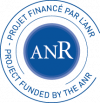Table of Contents
Welcome to "The Past Has Ears"
The Past Has Ears is a portal to research on Cultural Heritage of Acoustics, focusing on room acoustics and soundscape.
This site directly hosts 2 projects:
- the European PHE project, the namesake at the origin of this project (#projectPHE)
- the French project PHEND, an extension to certain aspects of the PHE project (#projectPHEND)
These 2 projects are inspired by the concept of the mythical phoenix, represented by the constellation phe, and the detrimental fires which have ravaged various historical sites having an acoustics of importance. These projects rely on the use of virtual reality and simulations to study and experience the acoustics of historical sites. The projects also represent a collaborative effort between social/human science researchers and acoustic/information technology researchers, to the benefit of all disciplines.
These projects are associated with studies in archeoacoustics as it relates to room acoustics. PHE and PHEND are also part of the Experimental Virtual Archaeological-Acoustics EVAA program, led by the "Sound Spaces" Sorbonne University team.
PHE : The Past Has Ears
 EU JPI-CH PHE : The Past Has Ears (2020-2023)
EU JPI-CH PHE : The Past Has Ears (2020-2023)
PHE is a collaborative research project. Partners in the project include researchers from a wide range of disciplines focusing on room acoustics as an important aspect of cultural heritage. Funding has been provided by the EU JPI Cultural Heritage project PHE.
For more information, follow the PHE project link.
PHEND : The Past Has Ears at Notre Dame
 ANR PHEND : The Past Has Ears at Notre Dame (2020-2024)
ANR PHEND : The Past Has Ears at Notre Dame (2020-2024)
PHEND is a French collaborative research project funded by the ANR. Partners in the project include researchers from a wide range of disciplines, all with an interest in the sonic history of the Notre-Dame cathedral.
For more information, follow the PHEND project link.
EVAA : Experimental Virtual Archaeological-Acoustics
EVAA (Experimental Virtual Archaeological-Acoustics) is a directive/umbrella project centralizing a variety projects focusing on heritage acoustics research and the use of acoustic simulations and virtual reality. Our goals are to facilite and coordinate research in this area, and encouraging collaborations and communications between researchers in various field interested in acoustic cultural heritage.
For more information, follow the EVAA link.
Productions
"La Vierge 2020" Hearing the Past: an immersive virtual audio concert for the ears
Production project : Recreation of the performance of "La Vierge" for the 850th anniversary of Notre-Dame Cathedral
As an initial production, a pre-project deliverable, coinciding with the International Year of Sound (sound2020.org) and to commemorate the fire at Notre-Dame Cathedral on April 15, 2019, members of the PHEND team (researchers and sound engineers) created a virtual reconstruction of a 2013 performance recording made in the cathedral, recreating the monumental acoustics and the event.
"Looking for Notre-Dame" An immersive sound fiction
Production project Looking for Notre-Dame, in 4 Episodes is available in full on Audible, free for active subscribers, or direct listening HERE. Available in French and English.
Looking for Notre-Dame is a 3D sound experience that plunges us into the mind of the young Victor Hugo as he begins his research for his future “cathedral novel”, Notre Dame de Paris. The year is 1828. Hugo is 26 years old. Notre-Dame was then a church in a dilapidated state. It would only be renovated by Viollet-le-Duc and Jean-Baptiste Lassus in 1843. Notre-Dame was dying, and Hugo wanted to resurrect it as it had been in the Middle Ages. The legendary author plunges us into an investigation / experiment on the sound of Notre-Dame, allowing us to explore its acoustics and soundscapes over the centuries.
"Notre-Dame Whispers" An immersive audio-guide
Production project “Notre-Dame Whispers”, is available for free for Android and iOS, from April 2024 (Link to application) in French, English, and Spanish.
“Shhh… Notre-Dame is speaking to you… Listen up! Experience an extraordinary sensory journey around the famous Parisian monument. Explore from viewpoint to viewpoint and immerse yourself in thrilling stories narrated by the oldest lady in Paris. Grab your headphones, your phone, and get ready to dive in. Live each story from the inside, as if you were there. Along a route composed of 6 listening stations, Notre-Dame shares her memories, which you collect one by one to recreate the rose of her memory.
Publications/Press
Press articles about this project can be found in the section: In The Press
Our scientific and editoral publications related to this project can be found in the section: Publications
Contact
If you have any question or comments, please contact brian.katz@sorbonne-universite.fr.
